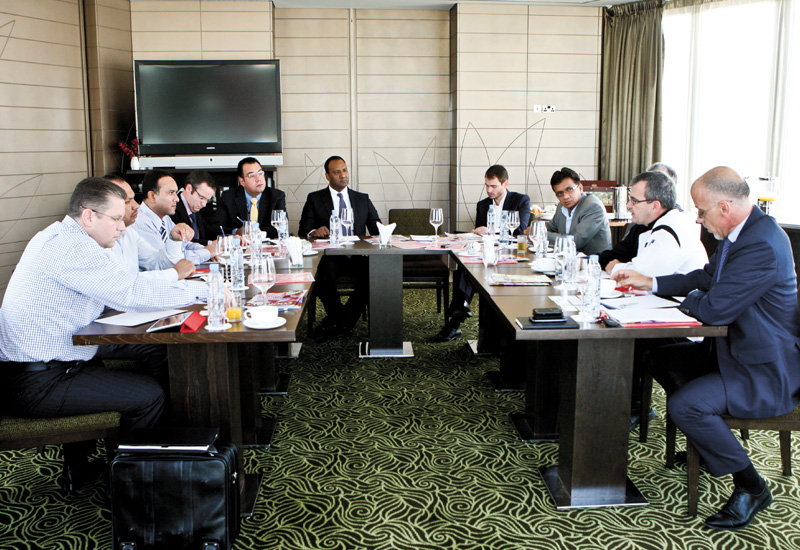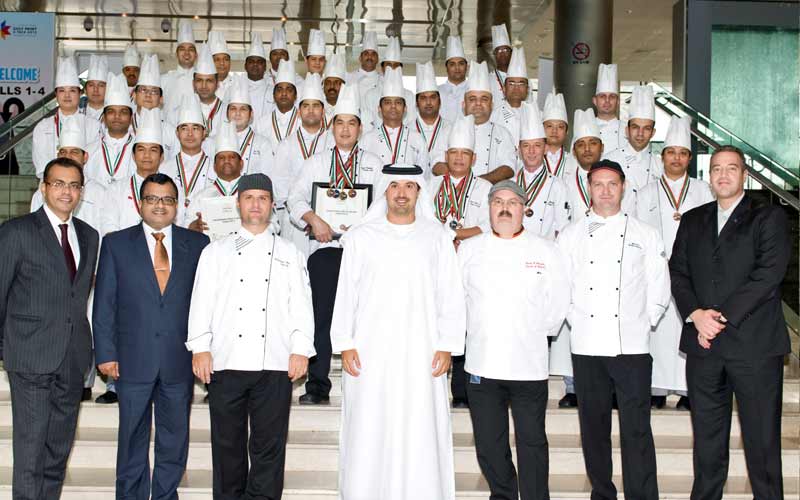So what the reasons people fall ill?
MKS: There are different reasons. We had three outbreaks in the last one or two years. Two of them were because of uncooked egg –based products. The third issue was sanitisation of utensils — that particular outlet used the same plate for meat and vegetables.
SSa: There was once an outbreak in a hotel where the cause was the parsley from the tabbouleh — it had been treated with grey water from its country of origin.
Hygiene is a massive concern?
Peter Kanneth George, sales & marketing director, Diversey Gulf: When it comes to spending on hygiene products, technology plays a big role. We bring in concentrated products to reduce costs; it used to be that previously you needed two products to clean and sanitise. We brought in a single product to do both the jobs. Productivity increases and cost comes down.

| Advertisement |
Technology is playing a big role in this industry. Training is key — it is not about the product or the system but standard operating procedures to be followed. We go and train the staff; we have a consultancy division where we train on food safety and handling, and support the industry.
What about food quality?
SSa: We have recently found traces of salmonella in chicken pieces from a big supplier in the States, and even though it’s a big company, I don’t know what their source is. Ok you want to go cheaper for the staff catering, but what about health? You can imagine the impact if you lose your workforce. Companies have to think of that as well.
RM: if somebody gets sick then the trickledown effect in terms of HR, replacement, lack of production add up dramatically. The economic cost of health and safety is a factor.
Jamie Ferguson, regional manager Middle East North Africa, Meat & Livestock Australia: We export to more than a 100 countries and we have got to do a good job. Quality, price, and yield is important. We’re seeing centralised packing units, so they’re taking butchers out of retail.
It’s all about specification on trim standards and on quality. On the food safety side, we have compulsory HACCP on everything exported to Dubai. So from a cut you can trace it back to the farming family if you had to. And we have such good traceability because we cannot afford disease outbreak.
So if it happened, that there’s a problem, we can trace the cut back to the abattoir and shut that region down and our country can keep exporting. When people are ready to pay for that extra peace of mind, that’s where we come in.
RM: Awareness of health and safety is on the increase. We feel more and more in the market and various customer profiles that more are concerned about health and safety.
MKS: We have issued a food code in 2013 relating to every issue giving the industry clear guidelines [on this front]. We are also asking the industry to give us feedback so every year we can review that code. Before we lacked clear-cut guidelines and now we have those.
PKG: The major challenge is that there’s a lot of focus on hospitality and there’s no organisation that can discuss large-scale catering issues. All the suppliers and stakeholders need to work together to cater to everyone’s requirements.
RM: It’s not just about cutting cost, it’s about value integration and how you can get your suppliers into your production value chain to reduce your costs.










 Search our database of more than 2,700 industry companies
Search our database of more than 2,700 industry companies









